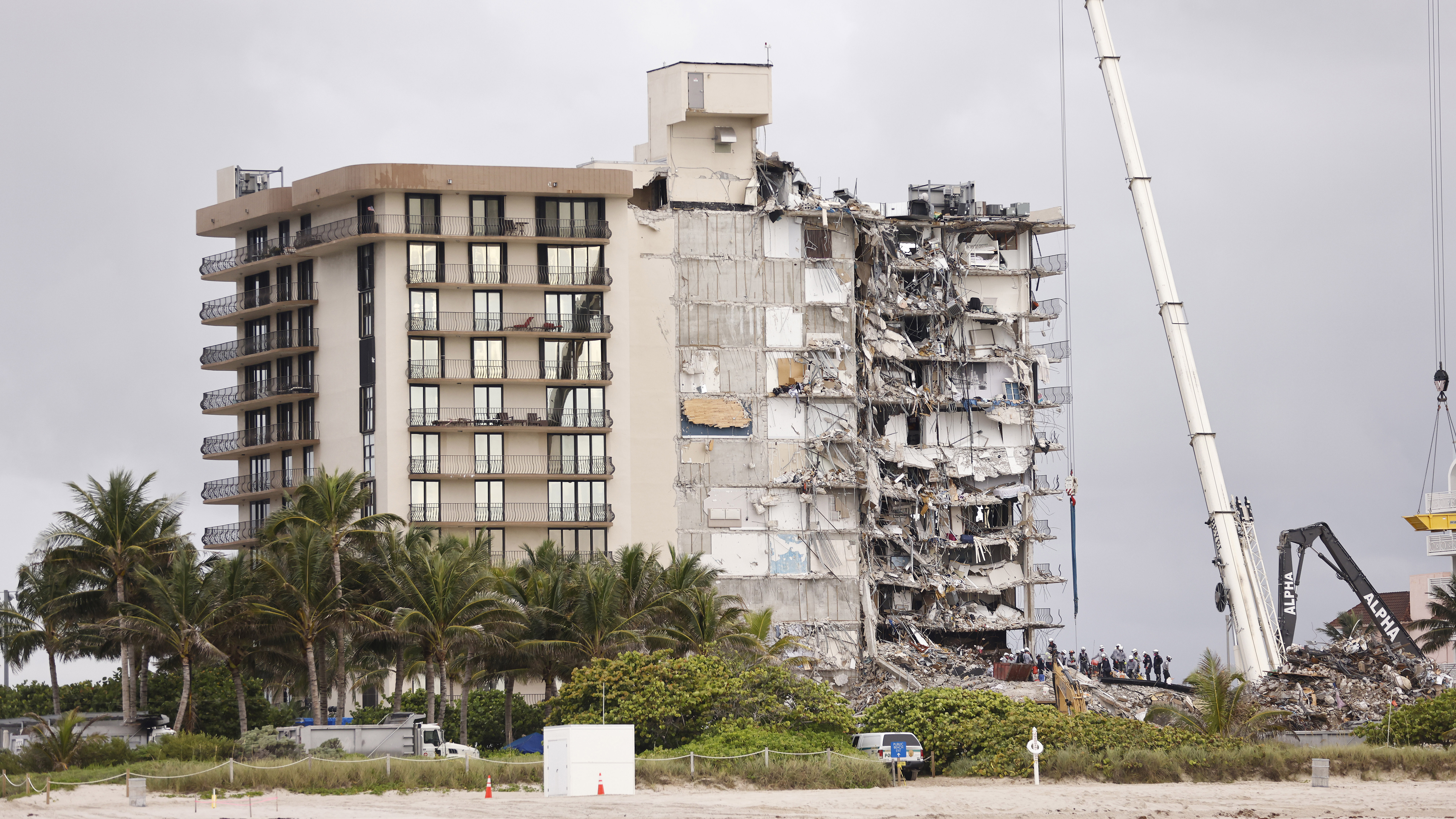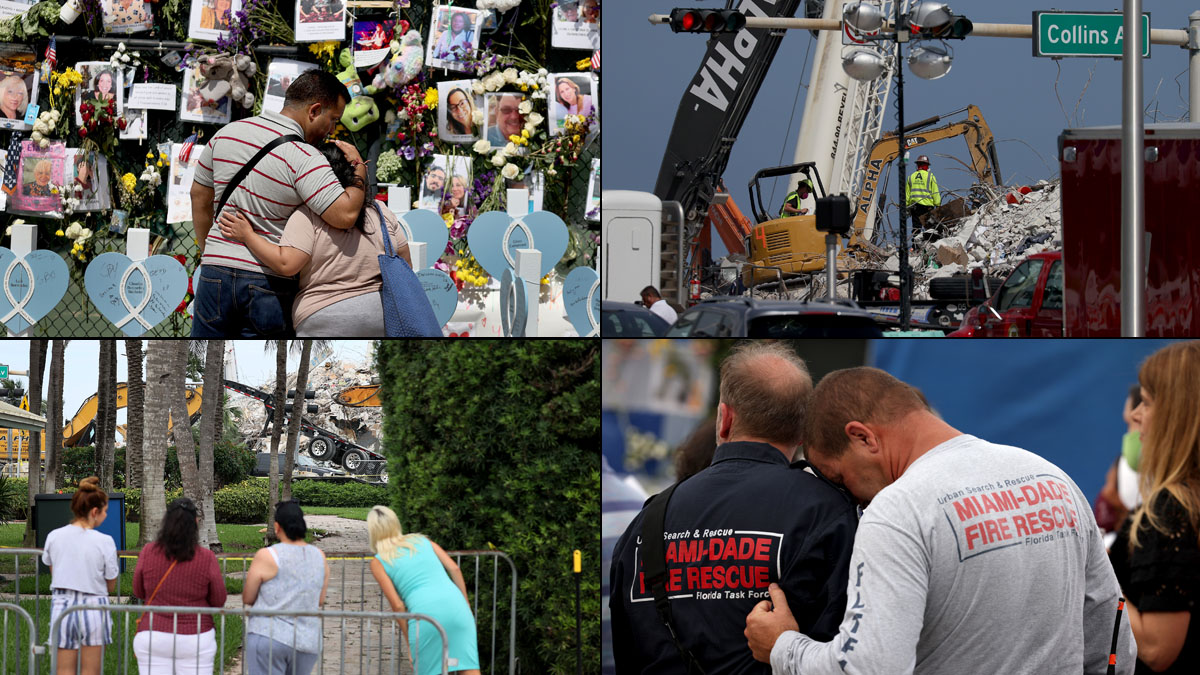Condo association laws have been under the microscope since the Champlain Towers South collapsed. NBC 6 and NBC News obtained internal condo association documents showing the board was pursuing more than $16 million in repairs but had less than $800,000 in its reserve fund.
That’s why the condo association was rallying residents to pay a special assessment averaging $110,000 per owner for repairs. The first payment was due when the building collapsed.
In 2008, Florida lawmakers passed a law to encourage condo associations to inspect and have a plan to deal with repairs, commonly known as a “reserve study,” every five years.
State lawmakers overwhelmingly repealed the law two years later.
Get South Florida local news, weather forecasts and entertainment stories to your inbox. Sign up for NBC South Florida newsletters.
Former state lawmaker Julio Robaina introduced HB 995 in 2008, which stated every five years associations “shall have the condominium building inspected to provide a report under seal of an architect or engineer authorized to practice in this state attesting to required maintenance, useful life, and replacement costs of the common elements.”
Robaina’s bill passed the Florida House and Senate unanimously. It was later signed into law by then-Republican Governor Charlie Crist, who is now serving Florida’s 13th Congressional District and running for governor as a Democrat.
Robaina told NBC 6 the law aimed to bring in expert analysis to recommend needed repairs. His bill did allow associations to temporarily opt out with a majority vote but the goal, he said, was to prevent condo boards from kicking problems down the road.
“Unfortunately there’s too much money in the world of associations. You’re talking buildings that have a million dollars a month budgets. You have some with $5,000 a month budgets. The money is too tempting,” Robaina said.
Two years later, lawmakers passed a 102-page community association reform bill. Within that bill, HB 663, two lines hidden deep into the bill repealed the section requiring 5-year inspections and reserve studies.
Robaina told NBC 6 condo association lawyers and industry groups advocated for the change. Lawmakers at the time, he said, might not even have realized the law was repealed.
“Unfortunately a lot of these members don’t read the bills. They basically walk up and say ‘What does this do? Oh, don’t worry it’s great’ and that’s what happens. That’s the reality,” Robaina said.
The 2010 repeal bill passed 111-3 in the Florida House, 39-0 in the Senate. It was signed into law by then-Governor Crist.
The sponsor of the 2010 bill was then-state representative Gary Aubuchon. NBC News and NBC 6 reached out to him via email and phone to learn more about the repeal and have not heard back.
In a statement, Rep. Charlie Crist did not comment on the 2008 or 2010 laws but said state lawmakers should take another look at safety measures.
“My heart continues to be with the victims and families of those impacted by the Surfside building collapse. This tragic accident could have been avoided and will forever mark a dark chapter in Florida’s history. The fact that the repairs needed at Surfside were known since 2018 makes clear that we must do more to protect Floridians. I am calling on the legislature and Governor DeSantis to take swift action and pass new building regulations and safety measures that will require high rises to undergo in depth inspections, along with the creation of low cost loan options for necessary structural repairs, to ensure the safety and livelihood of all Floridians,” he said.
There were six co-sponsors of the 2010 law, Republican and Democrat, including three from Southeast Florida: Hazelle Rogers, Steve Bovo, and Elaine Schwartz.
Bovo, who is now running for Hialeah Mayor, sent NBC 6 a statement, “We are all still in mourning over the tragedy that the families of Surfside are experiencing. There will be an investigation to determine what exactly caused the building to collapse. Unfortunately, in the meantime there will be speculation and sadly, because of the nature of our politics today, some in the media will be swift to point fingers. The bill you cite was eleven years ago, passed the Florida House with 111 Yes votes and only 3 No votes, and unanimously in the Florida Senate (39 to 0). That legislation didn’t cause the recent tragedy in our community. In the coming months state and county policy makers will discover the cause of the building’s collapse and hopefully work in a unified, bi-partisan manner to enact policies to prevent such a tragedy from happening again in the future.”
NBC 6 reached out to Hazelle Rogers, who is now the Mayor of the city of Lauderdale Lakes, and Elaine Schwartz, an attorney who is no longer in politics. We have not yet heard back.
Earlier this week the Florida Bar announced they were beginning a review of the state’s condo laws to make recommendations to state lawmakers. So far the governor and state legislative leaders say they want to know more about what led to the collapse before pushing specific changes.
Florida law does require condo associations to have reserves for projects more than $10,000 but is aligned with the majority of states which don’t require experts to inspect and detail how best to use the reserves. Only nine states require reserve studies.
“There are communities getting to 40 or 50 years of age requiring higher maintenance, higher levels of replacement of components,” said Thomas Skiba, the CEO of the Community Association Institute (CAI).
CAI conducted a survey titled “Breaking Point” which examines aging infrastructure in community associations. They found half the residents they surveyed believed their community had enough reserves, writing “in postponing inspections, reserve studies, and - ultimately complete repairs of renovations, boards often end up facing an exponentially more comprehensive and expensive project in the long run.”
Experts pointed to the Champlain Towers South board's reliance on special assessments — additional fees on top of residents' normal monthly payments — to fund needed repairs. The board imposed a $1 million special assessment in 2016 for hallway renovations and a $350,000 special assessment in 2019 for work on a generator, a fuel pump and a fuel tank. Such lump-sum levies are indicative of a building whose owners have decided not to set aside enough reserves through regular monthly fees, choosing instead to wait until a big-ticket repair is needed to ask residents to pay for it, experts said. Many associations make that choice by repeatedly voting to waive or reduce the funding of their reserves.
Maxwell Marcucci, a spokesman for the Champlain Towers South Condominium Association, declined to comment on reserve studies. In a previous statement to NBC News, he said the condo board was doing its best to ensure the building was safe. “They are not engineers and not building safety experts,” Marcucci said. “They hired experts, trusted experts, and at no point did the experts indicate that there was a threat of imminent collapse.”
Marcuccci declined our request for an on camera interview citing pending litigation.



